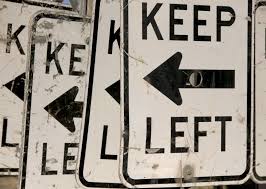Please support our coverage of democratic movements and become a supporter of rabble.ca.
At a time when the NDP is leading in many of the recent polls, I have simultaneously become increasingly disillusioned with the party (I was never a card carrying member of the party, but certainly an intellectual fellow traveller) as well as with the left in general in Canada. In recent years, I have asked myself what it means to be a leftie in Canada, and that question has been on my mind considerably more in recent weeks.
This feeling has come to the fore more recently with the NDP’s recent declaration and full support of balanced budgets. Indeed, they have vowed, if elected, to bring in a balanced budget within the first year of office, a position that is far more stringent than the Harper government’s own policy. In times of recession and slow growth, this is the wrong policy to adopt. I would even say that it is never a good policy.
The danger of this position is even more absurd when you wonder what the NDP would have done had they been in office in 2007 when the crisis broke out? We know that, empirically, the fiscal expansionary policies that were followed in the few years after the beginning of the crisis stabilized the great downward GDP spiral. We can argue that the money was misspent in some instances or that more was needed, as witnessed by our mediocre growth performance since then, but overall, deficit spending succeeded when it was needed.
By the NDP’s own admission, deficits are a burden on future generations and they are inflationary. Would they then have stood firm and refused to help the Canadian economy and Canadian workers? Of course, the party will never publicly comment on this as they know their position would raise serious credibility issues. But Canadians deserve to know if the NDP would consider deficit spending if the economy sunk into another severe recession or crisis. My guess is that they would not given we were in recession in the first half of the year and the NDP is campaigning on immediate balanced budgets.
At first, of course, I thought the party’s new austerian position was opportunistic and reflected a betrayal of the party’s core philosophy and of the party members. But now I am not so sure. In reading the many replies I received on past blogs criticizing the NDP’s austerian ways, I was dumbstruck at how many party members — so-called lefties — were against deficits. Now I am left with the impression that the NDP’s position is not a betrayal at all, but may simply reflect the members’ thinking. Maybe there was some deep internal polling done on this question, and the party seized the moment. Who knows.
It does lead, however, to a greater question of what it means to be a leftie today. We see this deep betrayal around the world, really. In France, for instance, the “socialists” are more to the right than Sarkosy’s UMP. We are told this is the new way, that we had “better get with the music” if we ever want to be elected again. In the UK, many on the left are now giving up on ever gaining power under the “radical” Jeremy Corbyn. Many of my so-called American leftie friends tell me that Bernie Sanders would kill the Democratic Party’s chances of keeping the White House.
But why? Why abandon some of the key policies for power? Why would citizens want to elect a left-wing party that behaves like the right when they can just vote for the party on the right?
For me, the definition of the left begins with the role of the state and in its ability to be transformative. It starts with the concept of functional finance, the notion that fiscal spending must achieve the social and economic goals set by government and its citizens, such as full employment. If deficits result, so be it. There are no credible studies that show that deficits are a bad thing. Let me repeat this: there are no credible studies that show deficits have adverse effects on the economy. Quite the contrary, good deficits (more on good vs bad deficits in another post) have a tremendously positive impact on the economy, both in the short term and the long term.
But deficits have become such a dirty word; and that has been the right’s greatest victory: to convince Canadians that deficits are bad, that they are a burden on future generations, that they are inflationary, that they threaten our welfare. None of this is true, of course, and there is plenty of evidence to support this. But it is difficult to convince Canadians, and even people on the so-called left, of the merits of this alternative way of thinking. It served us well in the decades following WWII, although this message was lost with the rise of Thatcher and Reagan, and the world has not been the same since.
I am amazed when I talk to my barber, my grocer, my taxi driver. They are all against deficits saying that the state should live within its means. After all, if we can’t, neither should the state. But this is a ridiculous argument, to which I will return in another blog post.
The left is starting to wake up, and this has been made evident by the wonderful manifesto by Naomi Klein. It is worth the wait, and hopefully will be met my more voices joining the fight of the True Left.
Please support our coverage of democratic movements and become a supporter of rabble.ca.



